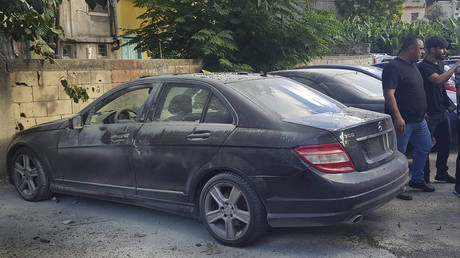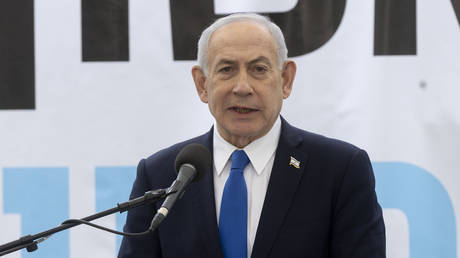
The recent detonation of communication devices that left thousands injured could be the start of a military escalation
On September 17, a series of explosions rocked Lebanon, as pagers used by the militant group Hezbollah for communication were detonated. The blasts occurred in the southern suburbs of Beirut, a stronghold of Hezbollah, as well as other parts of the country and Syria. According to Reuters, the explosions lasted for more than half an hour, claiming at least 12 lives, including the ten-year-old daughter of a Hezbollah member. Thousands were injured, including Iran’s ambassador to Lebanon.
The next day, Lebanon witnessed another wave of detonations, this time involving communication devices and equipment installed in cars and motorcycles, as reported by Al Hadath. The explosions occurred in Beirut, southern Lebanon, and the Bekaa Valley, leaving around 100 people injured and at least three dead in the town of Sohmor.
Al Jazeera confirmed that the blasts were linked to portable devices used by members of Hezbollah. Iran’s Press TV added that radios and ICOM communication devices were among those that exploded. Al Hadath also reported that laptops and equipment installed in vehicles were destroyed, some of which were unrelated to communication devices. A security source told Reuters that the portable radios were acquired by Hezbollah five months ago, similar to the pagers that were also sabotaged.
As reported by Reuters and AFP, one explosion occurred near the funeral of Hezbollah fighters who died the previous day. According to Al Jazeera, the explosions were also heard near Hezbollah’s headquarters in Beirut. Videos shared online show burned-out cars and destroyed scooters and motorcycles. Witnesses said the devices made strange noises and vibrations before the detonations.
Hezbollah issued a warning to Lebanese citizens, urging them to dispose of all gadgets and electronic devices. The Turkish channel Yeni Safak reported that the group fears further attacks on their equipment. Lebanon’s foreign minister, Abdallah Bou Habib, stated that these explosions could be a precursor to a larger conflict in the Middle East.
UN Secretary-General Antonio Guterres commented on the situation, calling on the global community to prevent the weaponization of civilian objects. The Lebanese authorities accused Israel and its Mossad intelligence agency of orchestrating the attacks, though Israel has not provided an official response. Hezbollah vowed to respond, calling the incident a “massacre against the Lebanese people,” while Washington claimed to have no knowledge of the bombings.
Lebanese security forces told the BBC that the explosions might have been the result of Israeli intelligence hacking Hezbollah’s communication devices. Although less than 1% of the detonations were fatal, hundreds of people suffered severe injuries, and the incident delivered a significant psychological blow to Hezbollah.
What does Israel want?
Israeli Prime Minister Benjamin Netanyahu and his far-right government are facing increasing pressure, both domestically and internationally. On Saturday, September 14, mass protests erupted in several cities across Israel, demanding a ceasefire in Gaza and the release of hostages held by Hamas. Thousands of demonstrators rallied under the slogan “We will not abandon them – we will not surrender,” expressing deep dissatisfaction with the government’s handling of the situation.
Over the past 11 months, despite intense military operations in Gaza, the Israel Defense Forces (IDF) has not been able to completely dismantle Hamas and other Palestinian militant factions. Though the IDF has dealt heavy blows to Hamas, killing around 17,000 fighters and eliminating key figures, such as Ismail Haniyeh, Hamas’ operational capability remains intact. The group continues to resist by utilizing underground tunnels and hidden bases to organize attacks. Although Israel has achieved significant victories, including disrupting much of Hamas’ infrastructure, the group continues to recruit new members, maintaining a stronghold in Gaza.
Aside from the brutal battles, Israel has faced severe losses among its civilian population. Since October 7, 2023, 1,139 Israelis, including many civilians, have been killed due to Hamas’ attacks. The heavy rocket bombardments on southern Israel have caused widespread destruction and heightened the sense of fear and uncertainty among the public. This constant threat has negatively affected the nation’s economy and deepened societal anxiety.
The conflict has also created a political storm within Israel. Netanyahu’s government is under fire from citizens demanding a swift resolution to the hostilities and the return of Israeli hostages. Protests have intensified, especially after the discovery of the bodies of several hostages in Hamas tunnels, fueling discontent with the government’s actions.
Internationally, the situation is no less complex for Israel. The administration of US President Joe Biden, one of Israel’s staunchest allies, has grown increasingly frustrated with Netanyahu’s inability to progress towards a peace settlement. The US has even threatened to withdraw from negotiations if no agreement is reached soon, criticizing Netanyahu for not making sufficient efforts to resolve the conflict. This mounting pressure puts Israel at risk of losing crucial Western support, which could have severe implications for its diplomatic standing and economic stability.
In this precarious situation, Netanyahu may be seeking new avenues to consolidate his position. One such path could be a renewed military campaign against Hezbollah, the Iranian-backed Shiite militant group in Lebanon. A war with Hezbollah could rally the Israeli population around an external threat, strengthen Netanyahu’s internal political standing, and attract renewed support from Western allies in the fight against anti-Western forces such as Iran and its regional proxies in the so-called ‘axis of resistance’.
Meanwhile, on September 18, the UN General Assembly passed a Palestinian-drafted resolution calling on Israel to end its “illegal presence” in Gaza and the West Bank within a year. Although the resolution is not legally binding, it calls for sanctions against Israel and compensation to Palestinians for damages caused by the occupation. This vote serves as significant symbolic gesture, highlighting the growing international pressure on Israel regarding its policy in the occupied territories.
As tensions continue to rise, Netanyahu faces mounting challenges both at home and abroad. With ongoing warfare and political strain, the prime minister is exploring new strategies to consolidate his power and overcome the domestic crisis. Many regional actors believe that Israel’s leadership may be steering towards a larger war, driven by the belief that military engagement might serve their broader objectives.
Will Hezbollah and Iran respond?
Hezbollah’s reaction to the pager explosions was a swift accusation against Israel of carrying out the largest breach of Lebanon’s internal security since the conflict began in October 2023.
These events put Iran in a difficult position. Over the past two months, Iran has already dealt with the assassination of the head of Hamas’ political bureau in Tehran, and now its ambassador was among those targeted in Lebanon. While Tehran has condemned Israel’s actions, experts believe that a direct military conflict with Israel is unlikely. However, Iran may initiate retaliatory actions through its proxy forces, such as Hezbollah, to strengthen its regional influence.
Hezbollah has its own reasons to respond. Over the past year, the group has lost more than 400 fighters due to Israeli attacks, including key commanders such as Fuad Shukr. For Hezbollah, this is not only an act of revenge, but a critical reputational challenge: If they do not respond, their popularity and support in Lebanon could drastically decline. Lebanon has been in a deep economic and political crisis since 2019, and Hezbollah’s inability to retaliate adequately could weaken its position in the country.
Historically, Hezbollah has demonstrated its capacity to resist Israel, significantly boosting its popularity after the 2006 Lebanon War. During that conflict, the group inflicted heavy damage on the IDF, which solidified its standing in Lebanese society. Today, amid an ongoing crisis, it is crucial for Hezbollah to show its supporters that it is still capable of defending Lebanon and its community.
Hezbollah’s response to the pager explosions will likely come in the form of rocket attacks and drone strikes on military and infrastructure targets in Israel. However, a direct invasion of Israeli territory seems unlikely. While Hezbollah possesses considerable military strength and an extensive arsenal, it understands that a full-scale intervention could lead to catastrophic consequences for both the organization and Lebanon, which is already in a fragile state.
In Israel, the situation is being taken much more seriously. Senior military and government officials have indicated that the country is preparing for a potential war with Hezbollah. The escalation of hostilities along Israel’s northern border with Lebanon is becoming increasingly apparent. According to Israel’s Channel 12, the cabinet has authorized Netanyahu and Defense Minister Yoav Gallant to take both defensive and offensive measures to achieve the war’s objectives. They have also been granted the authority to declare war if necessary. Israel is building up its military presence on its northern borders, preparing for a major operation against the Lebanese group.
This move could lead to a significant escalation of the conflict in the region. While Hezbollah does not seek direct confrontation with Israel, its attacks could provoke retaliatory strikes, creating a pathway to a full-scale war. Israel recognizes that any sign of weakness in its response could be perceived as vulnerability, increasing pressure from other regional actors, including Iran and its proxies.
We may be on the brink of another wave of tensions in the Middle East. If the situation continues to escalate, it could drag both Israel and Lebanon into a prolonged military conflict with far-reaching consequences for the region’s stability and security.




